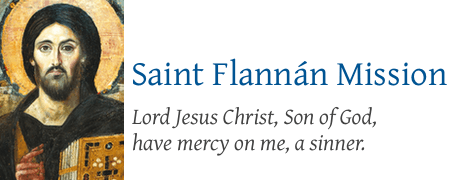In the Name of the Father and of the Son and of the Holy Spirit, one God. Amen. My beloved, today we celebrate the feast day of Saint Alladius, a 6th century bishop and martyr who refused to sacrifice Orthodoxy.
He was healed of wounds when our Lord Jesus Christ appeared to him, and he was preserved unharmed when cast into fire, tormented a great deal more, before he was beaten to death by a blow of fists. Saint Alladius, martyr of our Lord, pray for us.
As we worship in this sacred space, let us remember the Orthodox liturgy with the use of incense, as an offering to our God as said in Psalm 140. Incense was also a gift to Christ when He was born. As foretold also by the prophet Malachi in Malachi 1 verse 11, incense will be used in every place of worship, including by us gentiles. True enough, incense has been used by the apostolic traditions since.
When we think of love, we tend to imagine it in our own human terms. It is impossible to understand or measure just how vast the love of God for us is. In Hosea 14 verse 10, we are reminded that the path to God is a straight and narrow one, and the righteous will walk in them. If we read 1 John 4:8, we know “God IS love”. From Hosea 14 verses 1 to 10, we see that despite the unrighteousness of God’s people, God promised to love His people willingly and restore their hearts and erase their sins. All God asked for, is the confession of our sins in penance, and return to His care and love.
One of the holiest Orthodox priests, Abba Sisois, was dying. His brethren gathered around and saw his lips moving. “Who are you talking to, father?” The Abba said, “See, the angels have come to take me, and I am asking them for more time – more time to repent!” His disciples said, “You have no need to repent.” But the dying priest said, “Truly, I am not sure whether I have even begun to repent!” and died. In the eyes of his spiritual children he was perfect, but in his own eyes he was still at the very beginning.
The Gospel of John is pure poetry and has many layers of meanings, especially showing us that God IS love. We read from John 13, verses 3 to 17, of how Jesus Christ, our Lord and God, showed the way for His love for His disciples, by washing their feet. While Christ demonstrated His humility and service to His people, He was also symbolizing His impending death and resurrection and the cleansing power of that miracle. Christ was also telling us that taking a bath symbolized baptism, which is done only once and is indelible. However, much as we get our feet dirty very often by walking about, we as humans sin all the time, and therefore, our sins need to be cleansed often by confession and penance. Just as we read in Psalm 140, let us remember to make worship the sacrament of our lives, as we Orthodox remember the unceasing prayer of the heart, the Jesus prayer, which is a prayer of penance and confession: “Lord Jesus Christ, Son of God, have mercy on me, a sinner.”
We are reminded by Christ, to obey just 2 laws, love God, and love others. And so in 1 Corinthians 10 verses 23 to 33, let us remember to try to care for, to help, and to edify others for their well being. Verse 28 tells us that ALL of God’s creation is clean, and we can consume them. In these verses, we see that the most important thing is to care for and love others, even if they are not of the same faith. And if they are Christians but are judgmental, we should try to work around their judgmental nature and not offend them, as an expression of love. Let us try to be considerate to the feelings and thoughts of others, even if they may not agree with us, or may pass judgment upon us. And in so doing, we find that our burden is light, our walk joyous, and every breathing moment in life a blessing. And then, others may begin to find a glimpse of just what Christ’s love for people is supposed to look like – through our humble lives.
Let us close with a thanksgiving prayer:
It is truly meet to call thee blest, the Theotokos, ever blessed and most pure, and the Mother of our God. More honorable than the Cherubim, and more glorious than the Seraphim, without corruption thou gavest birth to God the Word: True Theotokos, we magnify thee.
O virgin Theotokos, rejoice; O Mary full of grace, the Lord is with thee. Blessed art thou among women, and blessed is the fruit of thy womb, for thou hast borne the Savior of our souls, Jesus Christ our Lord. Amen.
Blessings
Fr Raphael+
Readings today:
Hosea 14:1-10
Psalm 140 (Greek LXX)
St John 13:3-17
1 Corinthians 10:23-33
